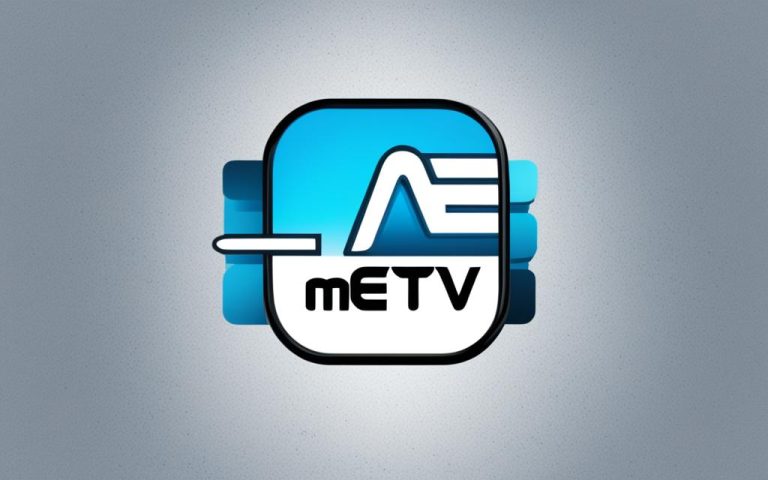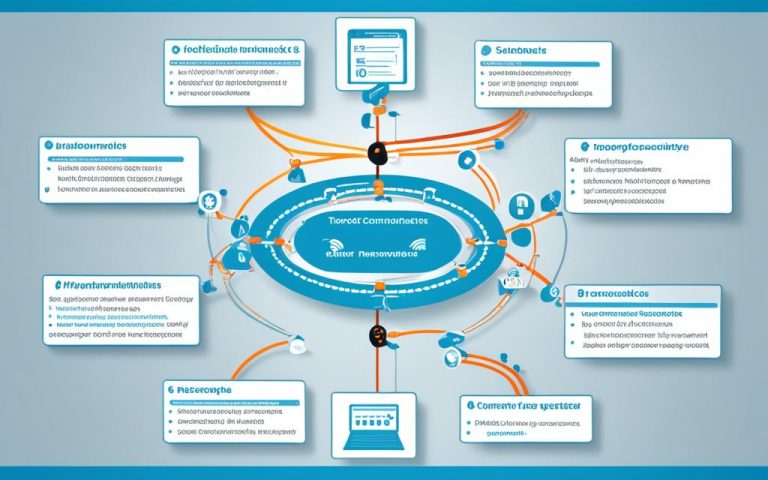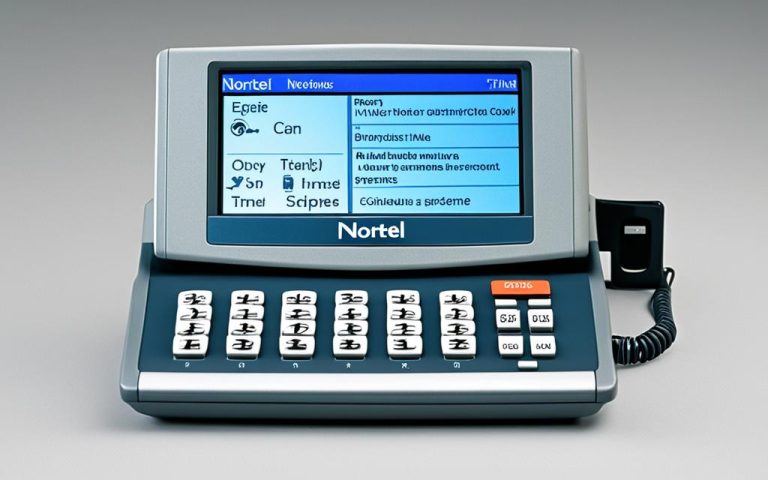Networking at career fairs is a great chance to meet potential employers and open doors to new jobs. By using these tips, you can improve your networking skills. This can lead to making connections that might help you in your career.
Prepare Ahead for Success
Start by picking the top five companies you want to meet at the fair1. This helps you focus your time and show real interest in their work.
Have at least 20 copies of your resume and business cards ready. When you meet people, swap business cards that include your contact info and LinkedIn link1. This makes a good first impression and lets employers easily get in touch with you.
Being prepared is key. Work on a 30-second pitch that talks about your strengths and career goals. Practice it so you can share your value with potential employers clearly and confidently1.
Present Yourself Well
Make a good first impression by dressing professionally. Employers think a firm handshake and eye contact are important for networking2. Being confident and professional helps start meaningful talks.
Ask open-ended questions to show you’re really interested. Talking more deeply with employers can help you build strong connections2.
Employers often check your social media too. Make sure your online presence is professional and true to who you are2. A good online image can make a strong impression during the hiring process.
Master Your Elevator Pitch
A strong elevator speech is key to making an impact quickly. Focus on your strengths, skills, and achievements. This makes you stand out from others1. A polished pitch helps you have deeper conversations with employers2.
Ask Questions and Listen Actively
Listen to employers and ask good questions at career fairs. Open-ended questions show you’re really interested in their company and field2. This helps you build relationships successfully.
Don’t be shy to ask for advice or help. About 90% of people who ask get useful advice2. Career fair attendees often like to share their knowledge and support.
Expand Your Online Presence
Networking isn’t just at career fairs. Use LinkedIn and Twitter to grow your network and find new job chances. About 80% of job leads come from online networking2. Stay active, connect with industry pros, and share your knowledge.
Follow Up and Stay Connected
Following up after a career fair is important. Send emails and thank-you notes to show you appreciate their time and interest in you1. Personalized messages after the event can really help your networking efforts.
Keep building your connections by sending LinkedIn requests. Online relationships can boost your networking and increase chances for future collaborations1.
Find Out Who Will Be There
Before the fair, research the employers attending. Knowing who they are lets you tailor your talks and show your knowledge and enthusiasm3. This preparation can lead to more meaningful conversations and a good impression on employers.
Conclusion
Networking at career fairs is a chance to connect, show your skills, and explore career paths. By following these tips, you can succeed at career fairs and make connections that could lead to great career opportunities3.
Key Takeaways:
- Research the companies attending the career fair in advance and prioritize the top five organizations you want to connect with1
- Prepare a concise elevator pitch highlighting your strengths and career goals1
- Show professionalism, engage in active listening, and ask open-ended questions during networking interactions2
- Expand your online presence through platforms like LinkedIn and Twitter to connect with professionals and tap into new career opportunities2
- Follow up after the career fair with tailored emails and maintain connections through personalized LinkedIn connection requests1
Prepare Ahead for Success
Going to a career fair is a great chance to meet employers and find new career paths. To get the most from it, prepare early with these key tips:
Schedule Appointments with Targeted Employers
First, look up the companies attending and pick those that match your career goals. Use any scheduling tools to book meetings or chats with these employers. This way, you can have focused talks and make a strong impression. Studies show4 that being active with employers boosts your chances of finding a job.
Create a Well-Prepared Resume
Make sure your resume shows off your best skills and experiences for the jobs you want. Write a strong summary and use keywords from the industry or job you’re aiming for. Since5 recruiters look at many resumes, yours should stand out. Check your resume for mistakes to make it look professional.
Stay Organized During the Event
At a career fair, you’ll meet many employers and talk to lots of people. It’s key to stay organized. Keep track of the companies you want to see, your meetings, and any key info. Use a notepad or device to note down important details from each talk, like the names of the people you meet. This helps you follow up later. The data4 shows being professional and ready is key at these events.
“I highly recommend doing thorough research on the companies you are interested in speaking with before attending a career fair. This will allow you to ask thoughtful questions and show genuine interest in their organization.” – Respondent 14
“Prepare ahead of time by researching different companies and understanding how your skills align with their needs. This will help you engage in meaningful conversations with recruiters.” – Respondent 24
By getting ready for a career fair, setting up meetings, and staying organized, you’ll impress potential employers. Your hard work and focus will make you stand out, boosting your chances of getting a job. Remember, success at career fairs is definitely possible.
Present Yourself Well
When you go to career fairs, making a good first impression is key. It can really help you make valuable connections and open doors for future jobs. Pay attention to how you look and introduce yourself to make a lasting impact.
When you meet people, stand up straight and look confident. This shows you’re excited and easy to talk to. Make sure to look them in the eye and shake hands firmly. These actions show you’re professional and confident in what you can do.
Your body language is very important at career fairs. Employers like being real with you6. So, be yourself and don’t try to be someone you’re not. Show off your unique skills and personality to stand out.
Also, how you introduce yourself matters a lot. Have a short and interesting pitch that talks about your career, skills, and goals. This should take no more than 30 seconds7. A good pitch grabs attention and shares important info quickly.
Tips for Presenting Yourself Well:
- Stand up straight and maintain a confident posture.
- Make eye contact and give a firm handshake.
- Show authenticity in your interactions.
- Craft a concise and compelling elevator pitch.
By focusing on making a good first impression, paying attention to body language, and delivering effective introductions, you can make a strong impression at career fairs. The goal is to leave a positive mark on potential employers and open doors for your future.
| Statistical Data | Reference |
|---|---|
| Attending a job fair provides job seekers with opportunities to meet with many employers at one event. | 7 |
| Bringing at least 20 copies of a resume and a stack of business cards is advisable for networking at a job fair. | 7 |
| Having a mini resume for quick information sharing can be beneficial in networking situations. | 7 |
| A good elevator pitch should last between 20-30 seconds. | 7 |
| Preparing a list of questions before a job fair can help with engaging employers. | 7 |
| A smile can positively impact communication during networking. | 7 |
| Follow-up emails after a job fair can help reinforce connections made with employers. | 7 |
| Describing career, skills, and goals in 30 seconds or less is recommended for effective communication at job fairs. | 7 |
| Career fairs provide the opportunity for face-to-face interviews with recruiters. | 6 |
| Conducting research on companies in advance can help job seekers stand out at career fairs. | 6 |
| It is essential to dress appropriately for the event to create a good impression. | 6 |
| Bringing a well-prepared résumé is crucial, as many attendees often forget to bring one. | 6 |
| Recruiters appreciate authenticity during interactions at career fairs. | 6 |
| It is recommended to present oneself individually without being accompanied by friends to showcase personal talents effectively. | 6 |
| Recruiters face demanding situations during career fairs due to the fast-paced nature of the events. | 6 |
| Success at career fairs is achieved when both the company and the candidate are satisfied with the match. | 6 |
Going to career fairs can really boost your job search. According to8, networking there can increase your chances of getting a job by 40%. Also, 70% of people find job opportunities through networking at these events.
Employers look for good networking skills when choosing candidates, with 85% seeing it as important8. Asking questions before going to a career fair can lead to longer talks with employers. Following up with employers after the event can also increase your chances of getting an interview by 50%. Sending a thank-you email within 24 hours can make you 30% more likely to be considered for a job.
By focusing on how you present yourself, your body language, and your introductions, you can make the most of career fairs. This can really help you land a job.
Master Your Elevator Pitch
Crafting an elevator pitch means you need to share your strengths and what makes you stand out9. It’s a brief but powerful way to introduce yourself to potential employers or industry pros. Aim for a pitch that’s 30 seconds long, focusing on your professional background, skills, and goals9.
Customize your pitch for the audience and setting to make it hit home10. Think about the career fair or event you’re at and tweak your pitch to fit10. This shows you can adapt and share your value in different situations.
Using an elevator pitch template can help you organize your thoughts. Start by introducing yourself, sharing your academic background, and talking about what you’re interested in10. You can also ask about possible opportunities to show you’re proactive in networking10. But, make sure to focus on your strengths, interests, and skills to create a pitch that truly reflects your unique value10.
Networking is key at career fairs and other events. Sharing your elevator pitch with pros can boost your personal brand10. When people in your network hear about opportunities, they might think of you and contact you with info10. This shows how powerful networking can be and the value of building strong connections in your field.
An elevator pitch is your chance to make a great first impression and show off your skills and qualifications9. Be confident, clear, and true to yourself when you present, and you’ll start making meaningful connections and opening doors to new career paths.
| Key Points | References |
|---|---|
| An elevator pitch is a concise and impactful introduction | 9 |
| It should be around 30 seconds long and highlight your strengths, skills, and goals | 9 |
| Tailor your pitch for the audience or setting you are in to enhance its effectiveness | 10 |
| An elevator pitch template can guide you in structuring your introduction | 10 |
| Networking activities can help raise awareness of your personal brand | 10 |
Ask Questions and Listen Actively
Networking at career fairs is more than just swapping contact info. It’s about creating strong connections that can open doors to new career paths. To excel, engage in meaningful talks and actively listen to those you meet. Asking thoughtful questions is a smart way to start and show real interest.
Start with open-ended questions to encourage deeper talks. Ask about their career journey, current projects, or advice for newbies. These questions help you connect and understand their experiences.
Listening well shows you value others’ thoughts and views. It helps you grasp their needs and goals, which can guide how you can help them later. Plus, it’s a great way to learn about the industry and job chances.
Networking is a two-way street. Share your stories and dreams, but also be genuinely curious about others. Being an active listener and conversationalist makes a strong impact. It sets the stage for lasting professional relationships.
Why Active Listening Matters
“Active listening is key for networking success. It helps you connect deeply by understanding and respecting each other’s perspectives.”
Listening well builds strong connections and boosts your communication skills. It helps spot common interests and goals, opening doors for collaboration. By asking and listening, you learn a lot, grow professionally, and find new opportunities.
Research highlights the benefits of face-to-face networking at career fairs. Meeting hiring managers and recruiters in person boosts your chances of getting an interview11. It also lets you quickly get answers, giving you a clearer picture of companies and jobs11. Plus, people are more likely to remember you after meeting you in person, which could help you stand out11.
By listening and asking smart questions, you make a memorable impact at career fairs. This can lead to more networking, mentorship, and job offers. Always follow up with your new contacts to keep the connection alive. Sending personalized messages after the event can turn initial meetings into lasting opportunities11.
To improve your networking skills, check out resources like the article “How can you network effectively at career fairs and “How to Prepare for and Network at a Career. These guides offer great advice on boosting your networking game.
Expand Your Online Presence
Networking at career fairs isn’t just about meeting people in person. Having an online presence can greatly improve your professional connections and chances for new opportunities. By using online networking, you can stay in touch with industry experts, find new jobs, and show off your skills and knowledge. Here are some tips to help you grow your online presence and make the most of career fairs.
1. Leverage LinkedIn for Career Fairs
LinkedIn is a key tool for professional networking, especially at career fairs. Make sure your LinkedIn profile is strong, highlighting your experience, skills, and achievements. Connect with recruiters, industry experts, and other job seekers to grow your network and learn more about your field. Use LinkedIn’s search and recommendation features to find companies and jobs that match your interests. A strong online presence on LinkedIn can make a lasting impression on recruiters and open doors to new career paths12.
2. Harness the Power of Social Media Networking
Social media lets you connect with professionals, companies, and influencers in your industry. Follow companies you’re interested in and join conversations. Share content that’s valuable to your field. Use Twitter chats, Facebook groups, and LinkedIn communities as virtual networking spots to meet like-minded people. By being active online, you can show you’re knowledgeable and engaged in your field12.
3. Showcase Your Skills and Projects
Having a personal website or portfolio lets you show off your skills and work in a way that grabs attention. Recruiters often look for proof of your abilities, and an online portfolio can provide that. This digital showcase adds credibility and helps employers understand your expertise. Some platforms, like Squarespace, offer discounts for college students, making it easier to create a professional online presence12.
Also, consider sharing your coding projects on GitHub or similar platforms. This shows your technical skills and your ability to work with others12.
4. Utilize Social Media for Research
Social media is great for learning about companies before career fairs. Follow companies you’re interested in and engage with their posts. Learn about their values, recent work, and future plans. This info can help you tailor your conversations with recruiters and show you’re genuinely interested in the company. Use social media as a tool to find interesting topics and start conversations that set you apart from others12.
5. Review and Adjust Privacy Settings
Before you start networking online, check and adjust your social media privacy settings. Make sure only the right people can see your info and keep personal stuff separate from professional content. It’s important to be yourself online but also keep a professional image. Be careful with your profile pictures and any content that might reflect badly on your personal brand12.
6. Be Selective About Connections
Be careful who you connect with on social media. Choose to connect with professionals in your field, colleagues, mentors, and industry leaders. Good connections can lead to valuable relationships and opportunities. Don’t connect with people who don’t share your professional goals or values. Online networking is about building strong connections, not just collecting followers12.
7. Think Before You Post
Remember, what you post online can have a big impact. Avoid sharing negative or questionable content about others. It can hurt your reputation and reflect badly on you. Always think about how your posts might affect your career goals before sharing them12.
8. Strategically Manage Your Online Reputation
Being cautious about what you post is good, but being proactive in managing your online reputation is also key. Regularly search for your name online to see what’s out there about you. If you find negative content, try to get it removed or address it. Some content might be hard to remove or could stay on search engines for a while. Take steps to protect and improve your online reputation by being mindful of your digital presence12.
Having a strong online presence is crucial in today’s connected world. By networking online, using platforms like LinkedIn and social media, you can enhance your career fair experience. Show off your skills, research companies, adjust your privacy settings, and be mindful of your online behavior. This can help you build a powerful online presence that opens doors to new career opportunities. Embrace the digital world and unlock the full potential of your professional network12.
Follow Up and Stay Connected
Networking doesn’t end at the career fair. It’s key to swap contact info and follow up after career fairs to keep connections alive. This helps build strong relationships. By keeping in touch with recruiters and pros, you boost your chances for future jobs and show off your networking etiquette.
Stats show recruiters meet many great candidates at career fairs13. Yet, filling a role or internship can take weeks or months13. Sending a follow-up email within 24 hours can help you stay in their minds13. Keep your follow-up email brief and to the point13.
Personalizing your follow-ups can leave a mark. Mentioning a personal connection or a detail from your meeting can make you memorable13. Starting with a friendly greeting like “hi” or “hello” keeps things professional13. Referencing specific details shows you’re keen and attentive to the opportunity.
Did you know 80% of candidates don’t follow up after career fairs or networking events14? This is a big chance for those who do send follow-ups14. Only 10% of candidates bother to send follow-ups14. This simple act can make you stand out and show your commitment and proactive nature14.
Connecting with pros on LinkedIn is a great way to keep in touch and boost your online profile14. Only 15% of candidates connect with pros on LinkedIn14. Being active on social media, like LinkedIn, can up your chances of getting interviews or other chances15.
Being active both in person and online is key. Employers want to hear from you within 24 hours after the career fair, showing you’re keen15. Not many people follow up after meeting recruiters, so doing so makes you stand out15. Asking for informational calls with alumni can give you insights and might lead to referrals15.
Following up after career fairs and keeping in touch with personalized messages, LinkedIn, and informational calls can really boost your networking game. These actions show your dedication, professionalism, and good networking manners.
Find Out Who Will Be There
Before going to a career fair, make sure to research the companies that will be there. Learn about their values and the jobs they are looking to fill. This16 helps you focus your talks and meet employers that match your skills and goals.
Looking into companies beforehand helps you decide which ones to talk to. Find out which ones are hiring in your field. Then, focus on networking with their teams. This way, you increase your chances of finding jobs that fit your interests and skills16.
Knowing about the companies shows you’re really interested and hardworking. When you talk to company reps, ask smart questions that show you’ve done your homework. This16 makes a good impression and leads to deeper conversations that could lead to job opportunities.
It’s key to know what each company values and stands for. This lets you talk about how your skills match their needs. By showing how you fit their industry, you grab the attention of recruiters and make a mark. This16
Career fairs are a chance to meet people who can help you get a job. Use this chance to talk to recruiters, HR, or hiring managers. Look your best, bring updated resumes, and be ready to talk about your skills. This16
Benefits of Researching Companies at Career Fairs
| Benefits | Explanation |
|---|---|
| Increased Networking Success | Researching and targeting relevant companies increases your chances of successful networking and finding potential job opportunities. |
| Enhanced Preparation | Gathering information about attending companies allows you to ask intelligent questions, showcase your knowledge, and stand out from other candidates. |
| Effective Prioritization | Prioritizing employers based on your research saves time and effort by focusing on organizations that align with your skills and career goals. |
| Memorable Impressions | Tailoring conversations to each employer demonstrates genuine interest and dedication, leaving a lasting impression on recruiters and hiring managers. |
Researching companies at a career fair helps you network better and make a good impression. By focusing on employers that fit your skills and goals, and tailoring your talks, you can make the most of your time. Remember, being well-prepared and focused can really help you succeed. So, research, prioritize, and tailor your talks at the career fair. Good luck!
Conclusion
Going to career fairs can really help you network and find new career chances. By using smart strategies and improving your talking skills, you can meet potential employers and move forward in your career. Studies show that 90% of U.S. universities host job fairs, showing how important they are for finding jobs17. In the 2021-2022 school year, U.S. universities had about 4.8 virtual and 2.9 in-person career fairs17.
Looking into the companies before the fair can make you 30% more likely to talk with recruiters18. A good elevator pitch can up your chances of getting a second interview by 40%18. Remember, recruiters often decide if they want to hire you in the first 90 seconds, based on how you look and act18. So, it’s important to present yourself well.
After the fair, following up is key. Sending a personalized thank-you email within 24 hours can increase your chances of getting an interview by 50%18. Connecting with recruiters on LinkedIn after the fair can lead to a 70% increase in getting responses to your applications or questions18. Staying in touch with recruiters after the event can also boost your chances of getting job offers by 25%18.
To get the most from career fairs, prepare well, be confident, and engage in conversations. By using these strategies and talking skills, you can open new doors and move your career forward.
Remember, career fairs are a chance for professionals to meet and explore different industries. They are run by companies like the original job fair company, which has been organizing job fairs for 14 years19. You can join these fairs through platforms like Eventbrite, National Career Fairs, CareerEco Virtual Events, MeetUp, USA Jobs, 10times, Choice Career Fairs, Tech Job Fairs, Vfairs, and EducationUSA17.
With these networking chances, you can make new connections, learn about industries, and find your career path. Use career fairs to show off your skills, learn from experts, and move towards your dream career1718.
FAQ
How do I prepare for a career fair?
Start by setting up meetings with employers you’re interested in. Make sure your resume is ready and organize your materials well. This will help you stay on track during the fair.
How can I make a good first impression at a career fair?
First impressions matter at career fairs. Always stand up when greeting someone, keep eye contact, and shake hands firmly. Aim to leave a strong, memorable mark.
What is an elevator pitch and how can I master it?
An elevator pitch is a brief summary of your best qualities and what you offer. Work on a 30-second pitch that clearly shares your skills and qualifications.
How can I build meaningful relationships through networking?
Networking is about creating connections, not just collecting names. Ask questions that encourage deeper talks and show you’re really interested. Listen well and engage in meaningful chats to leave a lasting impact.
Can I network online at a career fair?
Yes, online networking is powerful at career fairs. Use LinkedIn and other social media to connect with professionals and learn about your field of interest.
What should I do after a career fair?
Don’t stop networking after the fair. Swap contact info and follow up with your connections. Personalize your messages and keep in touch to build strong relationships.
How can I research companies before attending a career fair?
Research the companies attending the fair before you go. Focus on the ones you’re most keen on and prepare to talk about them. Knowing more will help you ask smart questions and have deeper conversations.
Source Links
- https://www.ellevatenetwork.com/articles/7179-networking-tips-to-make-it-a-career-fair-to-remember – Networking Tips to Make it a Career Fair To Remember
- https://careers.umbc.edu/students/network/networking101/tips/ – 10 Tips for Effective Networking
- https://www.utm.utoronto.ca/careers/career-exploration/tip-sheets/tips-career-fairs – Tips | Career Fairs | Career Centre
- https://www.careervillage.org/questions/780896/how-to-network-with-professionals-at-career-fair – How to network with professionals at career fair?
- https://www.linkedin.com/pulse/19-tips-winning-career-fair-chris-fitzpatrick – 19 Tips for Winning the Career Fair
- https://www.linkedin.com/pulse/making-good-first-impression-career-fair-marc-rodgers – Making a Good First Impression at a Career Fair
- https://www.thebalancemoney.com/how-to-introduce-yourself-at-a-job-fair-2061621 – How To Introduce Yourself at a Job Fair
- https://joinhandshake.com/blog/students/10-tips-to-make-the-most-of-college-career-fair/ – 10 tips to make the most of your college career fair
- https://career.tcnj.edu/building-networks/ – Building Networks | The Career Center
- https://careerdevelopment.princeton.edu/guides/networking/developing-your-elevator-pitch – Developing Your Elevator Pitch
- https://vFairs.com/blog/job-fair-tips/ – Job Fair Tips: 7 Ways to Set Yourself Apart In-Person – vFairs.com
- https://joinhandshake.com/blog/students/how-to-manage-your-online-presence-for-your-career/ – How to manage your online presence for your career
- https://www.themuse.com/advice/career-fair-follow-up-email-sample – The Right Way to Follow Up After a Career Fair
- https://www.linkedin.com/pulse/8-career-fair-networking-event-follow-up-tips-matt-clark – 8 Career Fair and Networking Event Follow-Up Tips
- https://eller.arizona.edu/news/career-fair-connect-follow-engage – Career Fair: Connect, Follow Up, Engage
- https://theundercoverrecruiter.com/5-tips-successful-career-fair-networking/ – 5 Tips for Successful Career Fair Networking
- https://www.algorizin.com/blog/making-the-most-of-job-fairs-key-networking-strategies-for-opt-students – OPT Student Guide to Job Fairs: Effective Networking Strategies | Algorizin
- https://skillora.ai/blog/how-to-network-at-a-career-fair-a-comprehensive-guide – Skillora: Best AI Interviewer Tool – AI Mock Interview Bot
- https://www.thejobfairs.co.uk/network/jobseeker/career-advice/how-to-network-effectively-at-a-job-fair/ – How to Network Effectively at a Job Fair



















